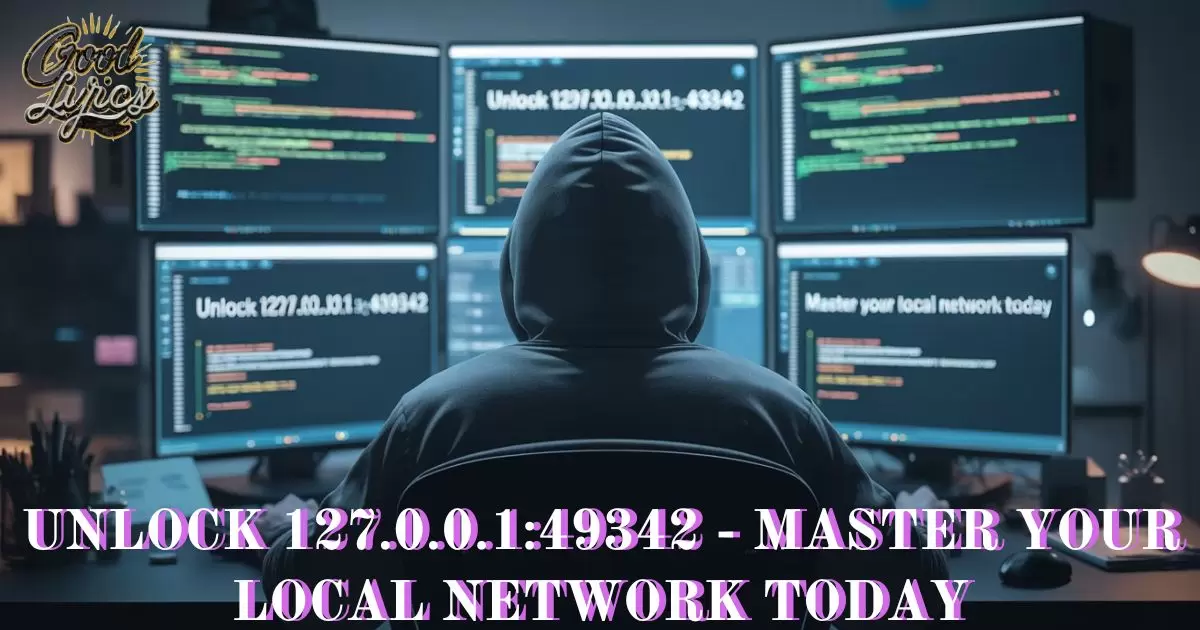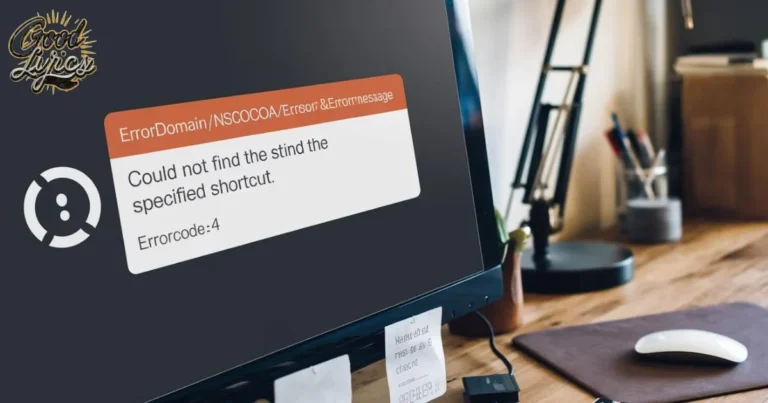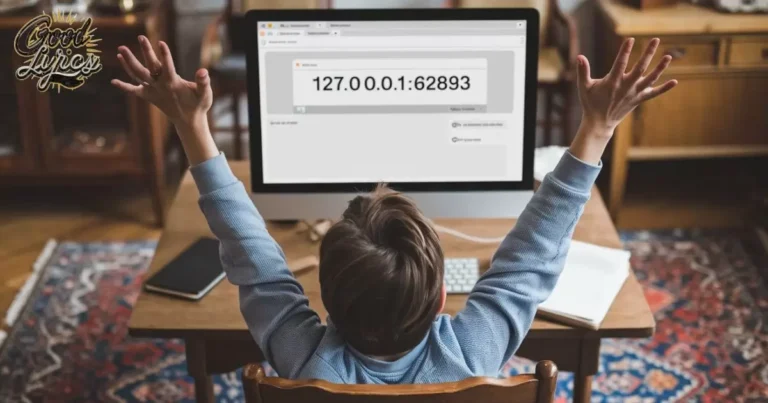
In the wider realm of computer networking, few addresses are as important as 127.0.0.1:49342. This seemingly secret combination of numbers and dots plays an important role in how our devices communicate internally.
And serve as a foundation for developers, network administrators, and cybersecurity professionals alike. Let’s demystify this address and explore its importance in the digital landscape.
The Anatomy of 127.0.0.1:49342
Breaking Down the Loopback Address
At first glance, 127.0.0.1:49342 might appear to be a random string of numbers. However, each part holds a specific meaning:
You may want to Read: 127.0.0.1:62893 Explained: Troubleshooting Common Errors
- 127.0.0.1: This is known as the loopback address or localhost. It’s a special IP address that always refers to the current device, allowing it to communicate with itself.
- 49342: This number represents the port, which acts like a specific channel for data to flow through.
The Significance of Localhost
The loopback address serves as a virtual network interface, enabling software on your computer to connect to itself as if it were a separate machine. This functionality is invaluable for testing and development purposes, providing a safe environment to experiment without affecting external networks.
Port 49342: More Than Just a Number
While the loopback address remains constant, the port number (in this case, 49342) can vary. Ports allow multiple applications to use the network simultaneously, each listening on its unique port. Understanding port usage is crucial for diagnosing network issues and configuring applications correctly.
Practical Applications of 127.0.0.1:49342
Local Development and Testing
For web developers and software engineers, 127.0.0.1:49342 is a powerful tool. It allows them to:
- Test web applications without deploying to a live server
- Debug network-related issues in a controlled environment
- Simulate complex network scenarios without risking external data exposure
Network Troubleshooting
Network administrators often use the loopback address to:
- Verify if the TCP/IP stack is functioning correctly
- Isolate network problems by testing local connectivity
- Configure and test firewalls and other security measures
Security Implications
While 127.0.0.1:49342 is generally considered safe, it’s not without security considerations:
You may want to Read: https //www.microsoft.com /ink 10 Game-Changers: Your Digital Potential
- Malware can exploit localhost connections to hide malicious activities
- Misconfigured applications might expose sensitive data through local ports
- Developers must ensure that production code doesn’t rely on hardcoded localhost addresses
Common Issues and Troubleshooting
Port Conflicts
One of the most frequent issues with 127.0.0.1:49342 is port conflicts. When multiple applications attempt to use the same port, it can lead to connection errors. To resolve this:
- Identify the conflicting programs using tools like Netstat
- Change the port configuration for one of the applications
- Ensure that critical services are assigned to well-known ports
Firewall Interference
Sometimes, overzealous firewall settings can block legitimate localhost connections. To address this:
- Review your firewall rules and whitelist necessary applications
- Temporarily disable the firewall to test if it’s causing the issue
- Create specific exceptions for development and testing environments
Application-Specific Problems
Certain applications may have unique requirements or bugs related to localhost usage. In these cases:
- Consult the application’s documentation for known issues
- Check for updates or patches that might resolve the problem
- Reach out to the software’s support community for specific guidance
Best Practices for Using 127.0.0.1:49342
Secure Configuration
When working with localhost:
You may want to Read: Minecraft Icons & Banners: 10 Secrets to Epic Designs (2024)
- Use SSL/TLS for sensitive local communications
- Avoid exposing localhost services to external networks
- Regularly audit your localhost configurations for potential vulnerabilities
Documentation and Standardization

For development teams:
- Maintain clear documentation of port usage across projects
- Implement consistent naming conventions for localhost services
- Use configuration management tools to standardize localhost setups
Performance Optimization
To ensure smooth operation:
- Monitor resource usage of localhost services
- Implement caching mechanisms for frequently accessed local data
- Optimize database queries and API calls, even in local environments
The Future of Localhost and Local Networking
As technology evolves, the role of 127.0.0.1:49342 and similar local addresses continues to adapt:
- Containerization technologies like Docker are changing how developers use localhost
- IPv6 introduces new loopback addresses, expanding local networking capabilities
- Edge computing may blur the lines between local and remote resources
Conclusion
Understanding and effectively utilizing 127.0.0.1:49342 is essential for anyone working in software development, network administration, or cybersecurity. This humble address serves as a gateway to powerful local networking capabilities.
Enabling developers to create robust applications, administrators to maintain secure systems, and security professionals to safeguard digital assets.
By mastering the intricacies of localhost and its associated ports, professionals can unlock new levels of efficiency, security, and innovation in their work.
As we continue to push the boundaries of what’s possible in networking and software development, the seemingly simple 127.0.0.1:49342 will undoubtedly remain a critical tool in our digital toolkit.
You may want to Read: 5 Benefits of Using a Term Insurance Calculator
FAQs
What does the 127.0.0.1:49342 error mean?
The 127.0.0.1:49342 error indicates a connection issue on your local machine involving port 49342.
Why does the 127.0.0.1:49342 error occur?
This error typically occurs due to software conflicts, firewall restrictions, or corrupted application files.
How can I identify the program causing the 127.0.0.1:49342 error?
Look for related error messages, check recently installed or updated programs, and search online for the specific error code.
Should I disable my firewall to fix the 127.0.0.1:49342 error?
Disabling the firewall should only be done temporarily as a last resort. Be sure to re-enable it immediately after troubleshooting.
What if basic troubleshooting steps don’t fix the 127.0.0.1:49342 error?
Try advanced troubleshooting techniques like checking port usage with Netstat or lsof, reviewing system logs, or consulting with a technical expert.

Stay updated with the latest news and trending topics on my blogging website. From breaking stories to in-depth analyses, I bring you the most relevant updates concisely and engagingly!




